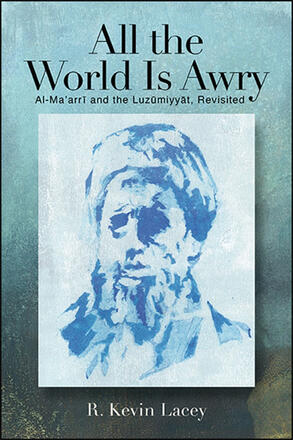
All the World Is Awry
Al-Maʿarrī and the Luzūmiyyāt, Revisited
Alternative formats available from:
Examines the thought of Abū al-‛Alā’ al-Ma‛arrī (973–1057 CE) within the broader context of the major trends in Arab Islamic political and intellectual history by the time of his flourishing.
Description
Free-thinking poet, grammarian, social critic, and satirist, Abū al-‛Alā' al-Ma‛arrī (973–1057 CE) remains one of the more celebrated and intriguing personalities in the history of Arab Islamic civilization. Although the controversies surrounding his skepticism, cynicism, and anticlericalism have never been completely resolved, his more disquieting writings are commonly available in the Arab world, cited in standard histories of Arabic literature, and the subject of scholarly studies.
Al-Ma‛arrī is universally recognized as a giant among the litterateurs of Islam, deservedly famous for the role that he played in the development of Arabic verse as a more serious vehicle of religious-political thought and social criticism. The centrality attributed to al-Ma‛arrī as innovator has been linked to a strain of inquiry that has been particularly paramount to Westerners: To what extent did al-Ma‛arrī and other unconventional thinkers stray from the course of mainstream Islamic thought?
In this book, R. Kevin Lacey places al-Ma‛arrī within the broader context of Arab Islamic political and intellectual history up to the mid-eleventh century and identifies the coherencies and incoherencies within his overall thought in an effort to determine the extent to which he deviated from his inherited faith. Al-Ma‛arrī and his like were hardly representative, and their imprint on their co-religionists may be questionable, but they must be taken into consideration in order to do full justice to the intellectual history of Islam.
R. Kevin Lacey is Associate Professor of Arabic and Near Eastern Studies at Binghamton University, State University of New York. His books include The Arab-African and Islamic Worlds: Interdisciplinary Studies (coedited with Ralph M. Coury).